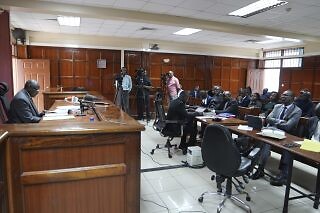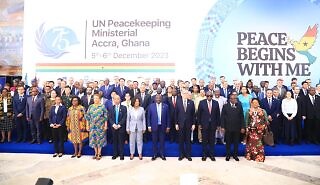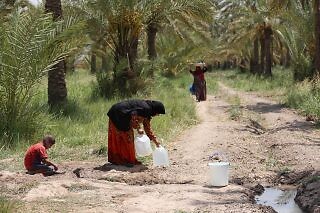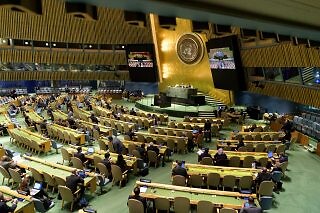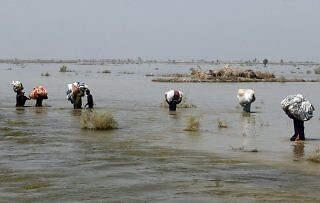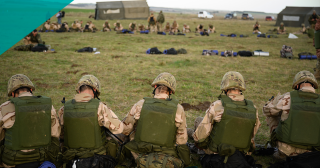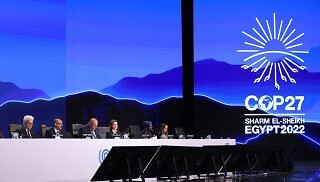Considering that the climate crisis predated the COVID-19 pandemic, why has attention on climate misinformation lagged? And how can efforts to tackle climate misinformation learn from and build off of similar efforts in the field of health?
Author: Albert Trithart
-
-
There is no playbook for this type of mission, and it is unlikely that it will be able to effectively operate without dedicated logistical support with adequate, predictable, and sustainable funding. This further delay in the deployment of the MSS provides an opportunity to reflect on the support required to provide the mission with the greatest chance of success in implementing an extremely difficult mandate.
-
At first glance, this year’s Ministerial was nothing out of the ordinary. Yet, given policy discussions over the past year, this in itself is significant. Less than a year ago, many stakeholders were questioning whether we had reached the end of UN peacekeeping.
-
In a paper recently published in International Studies Review, we conducted a systematic review of 41 peer-reviewed publications, assessing the evidence linking climate change and violent conflict in the MENA region. Our aim was to connect existing evidence to comprehend the climate-conflict pathways as a larger phenomenon. The following is what we found.
-
Scientists have been collecting data about the climate since the early 19th century. Data visualizations, however, are a relatively new phenomenon, and have become an important way to understand the climate crisis. Here are some notable ones in 2023.
-
The 78th United Nations (UN) General Assembly is convening at a time when humanity seems to be at war with itself and the environment. It has been charged with rebuilding trust in the multilateral system and reigniting global solidarity, which is approaching a danger zone. The culminating event of this process, the September 2024 Summit […]
-
Have the landmark humanitarian carve-outs in UNSC sanctions regimes worked? On the one year anniversary of UNSC Resolution 2664, Alice Debarre looks at the resolution’s impact and to what degree it has contributed to fully safeguarding humanitarian action.
-
The final text on how to operationalize the Loss and Damage fund is ready for COP28. The choice vulnerable countries made to give the World Bank a trial on hosting the fund is an unprecedented opportunity for the World Bank to show its commitment in assisting vulnerable countries navigate the climate crisis.
-
One of the key objectives of the WPS agenda is to integrate a gender perspective into all peace and security efforts. A comprehensive gender analysis should include men and masculinities.
-
In the world of global climate negotiations, a critical one took place this past Friday, October 20th. As the fourth session of the Loss and Damage Transitional Committee was coming to an end with barely any time for negotiators to read a last-minute text, a decision was made to add a fifth session around the […]

